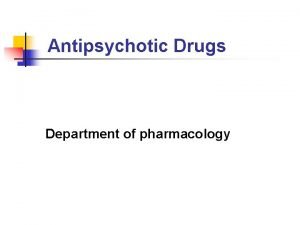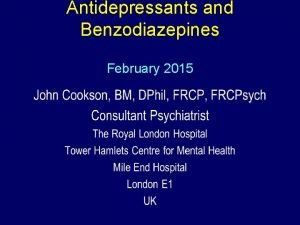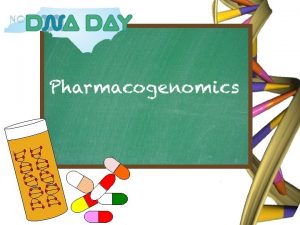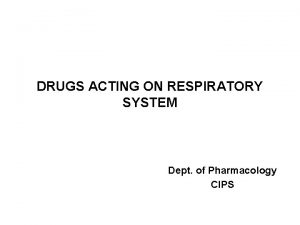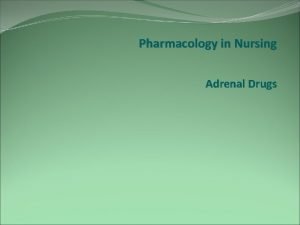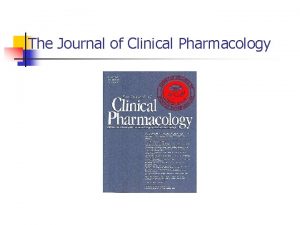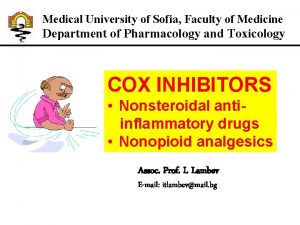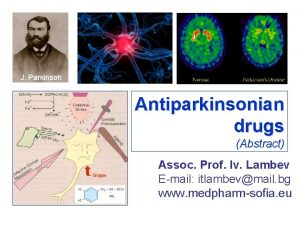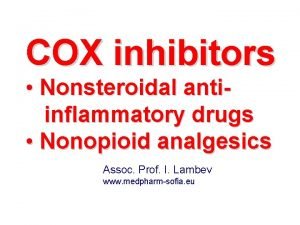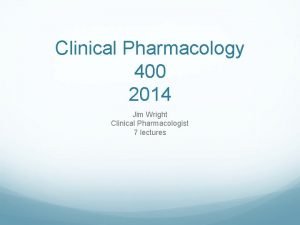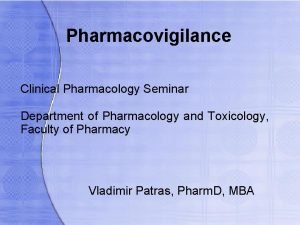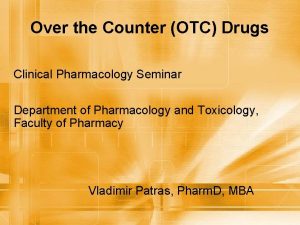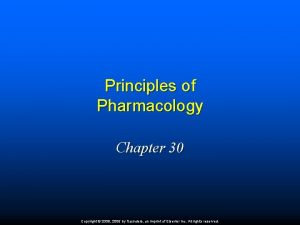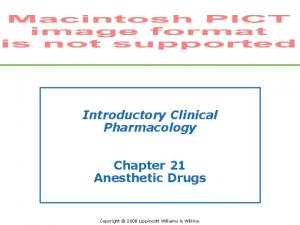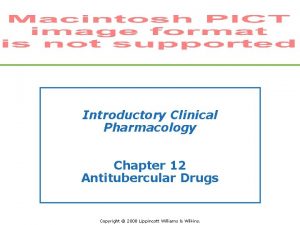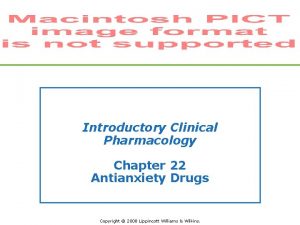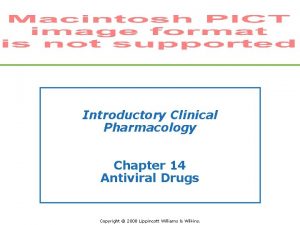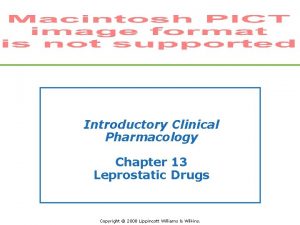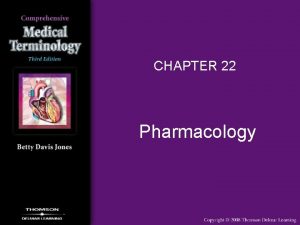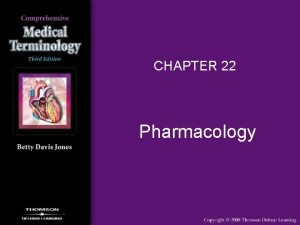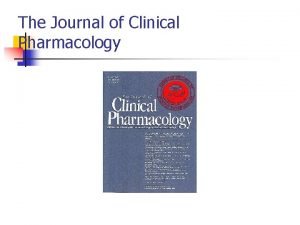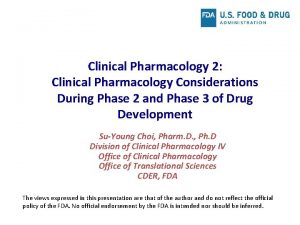Introductory Clinical Pharmacology Chapter 24 Antidepressant Drugs Copyright














- Slides: 14

Introductory Clinical Pharmacology Chapter 24 Antidepressant Drugs Copyright © 2008 Lippincott Williams & Wilkins.

Depression • Clinical Depression is treated with anti-depressants and/or psychotherapy. • Clinical Depression can be caused by an imbalance of neurotransmitters (ex. Seratonin) • S & Sx’s of Depression – Feelings of Hopelessness – Diminished interests in activities of life – Insomnia / Hypersomnia – Fatigue – Recurrent thoughts of death or suicide Copyright © 2008 Lippincott Williams & Wilkins.

Medications to Recognize: Anti-depressants • Tricyclic Anti-depressants (TCAs) – imipramine (Tofranil) – nortriptyline (Pamelor) • Monoamine Oxidase Inhibitors (MAOIs) – phenelzine (Nardil) • Selective Serotonin Reuptake Inhibitors (SSRIs) – fluoxetine (Prozac) – citalopram (Celexa) – paroxetine (Paxil) – sertraline (Zoloft) Copyright © 2008 Lippincott Williams & Wilkins.

• Misc – bupropion (Wellbutrin) – duloxetine (Cymbalta) Copyright © 2008 Lippincott Williams & Wilkins.

Tricyclic Antidespressants: Actions • Increase sensitivity of serotonin receptors • Make neurotransmission activity more effective • Inhibit reuptake of norepinephrine or serotonin in brain Copyright © 2008 Lippincott Williams & Wilkins.

Tricyclic Antidespressants: Uses • Used to treat: – Depressive episodes – Bipolar disorder; obsessive-compulsive disorders; chronic neuropathic pain – Depression-anxiety disorders; – Bulimia nervosa Copyright © 2008 Lippincott Williams & Wilkins.

Tricyclic Antidespressants: Adverse Reactions and Contraindications • Adverse reactions: Sedation • TC contraindications: Hypersensitivity to drugs, patients on MAOI antidepressants Copyright © 2008 Lippincott Williams & Wilkins.

Monoamine Oxidase Inhibitors: Actions and Uses • Actions: Increase in endogenous epinephrine, norepinephrine, dopamine, serotonin in nervous system • Uses: Depressive episodes, psychotherapy, bulimia, night terrors, migraine headaches, seasonal affective disorder, multiple sclerosis Copyright © 2008 Lippincott Williams & Wilkins.

Monoamine Oxidase Inhibitors: Adverse Reactions – Neuromuscular reactions: Orthostatic hypotension, dizziness, vertigo, headache, blurred vision – Gastrointestinal (GI) and genitourinary (GU) system reactions: Constipation, dry mouth, nausea, diarrhea, impotence Copyright © 2008 Lippincott Williams & Wilkins.

Selective Serotonin Reuptake Inhibitors • Actions: Inhibit CNS uptake of serotonin • Uses: Depressive episodes, bulimia nervosa, panic, post-traumatic stress disorders, anxiety and social phobias, Adverse reactions – Neuromuscular reactions: dizziness, headache, insomnia, tremor, weakness Copyright © 2008 Lippincott Williams & Wilkins.

Selective Serotonin Reuptake Inhibitors (cont’d) – Gastrointestinal, genitourinary system reactions: Constipation, dry mouth, nausea, abnormal ejaculation Copyright © 2008 Lippincott Williams & Wilkins.

Nursing Process: Assessment • Preadministration assessment – Obtain medical history – Assess mental status, subjective feelings, slowness to answer questions, monotone speech pattern, sadness or crying – Physical assessment, including blood pressure, pulse, respiratory rate, weight, suicidal thoughts – Ask about intent using simple, straightforward questions Copyright © 2008 Lippincott Williams & Wilkins.

Nursing Process: Assessment • Ongoing assessment – Monitor vital signs, report change to primary health care provider – Observe response to therapy – Document general summary – outward behavior, complaints, problems, compare previous notations, observations Copyright © 2008 Lippincott Williams & Wilkins.

End of Presentation Copyright © 2008 Lippincott Williams & Wilkins.
 Orthostatic hypotensin
Orthostatic hypotensin Snri vs ssri
Snri vs ssri Antidepressant side effects
Antidepressant side effects Antidepressant side effects
Antidepressant side effects Pharmacology of drugs acting on respiratory system
Pharmacology of drugs acting on respiratory system Adrenal drugs pharmacology
Adrenal drugs pharmacology Clinical pharmacology powered by clinicalkey
Clinical pharmacology powered by clinicalkey Clinical pharmacology
Clinical pharmacology Basic & clinical pharmacology
Basic & clinical pharmacology Basic & clinical pharmacology
Basic & clinical pharmacology Basic & clinical pharmacology
Basic & clinical pharmacology Clinical pharmacology residency
Clinical pharmacology residency Clinical pharmacology seminar
Clinical pharmacology seminar Spremicides
Spremicides Chapter 30 principles of pharmacology
Chapter 30 principles of pharmacology
